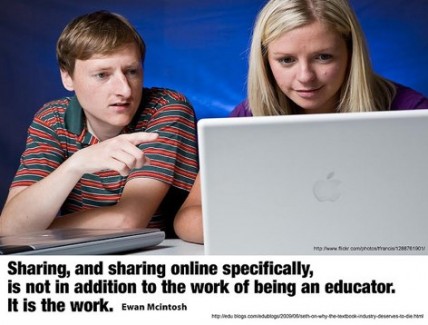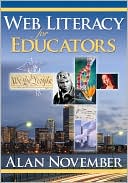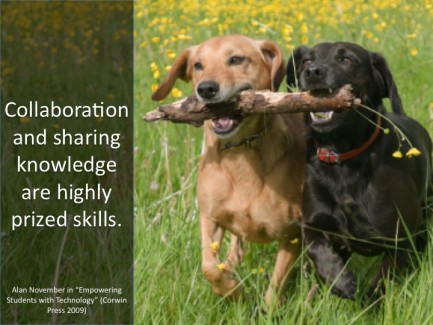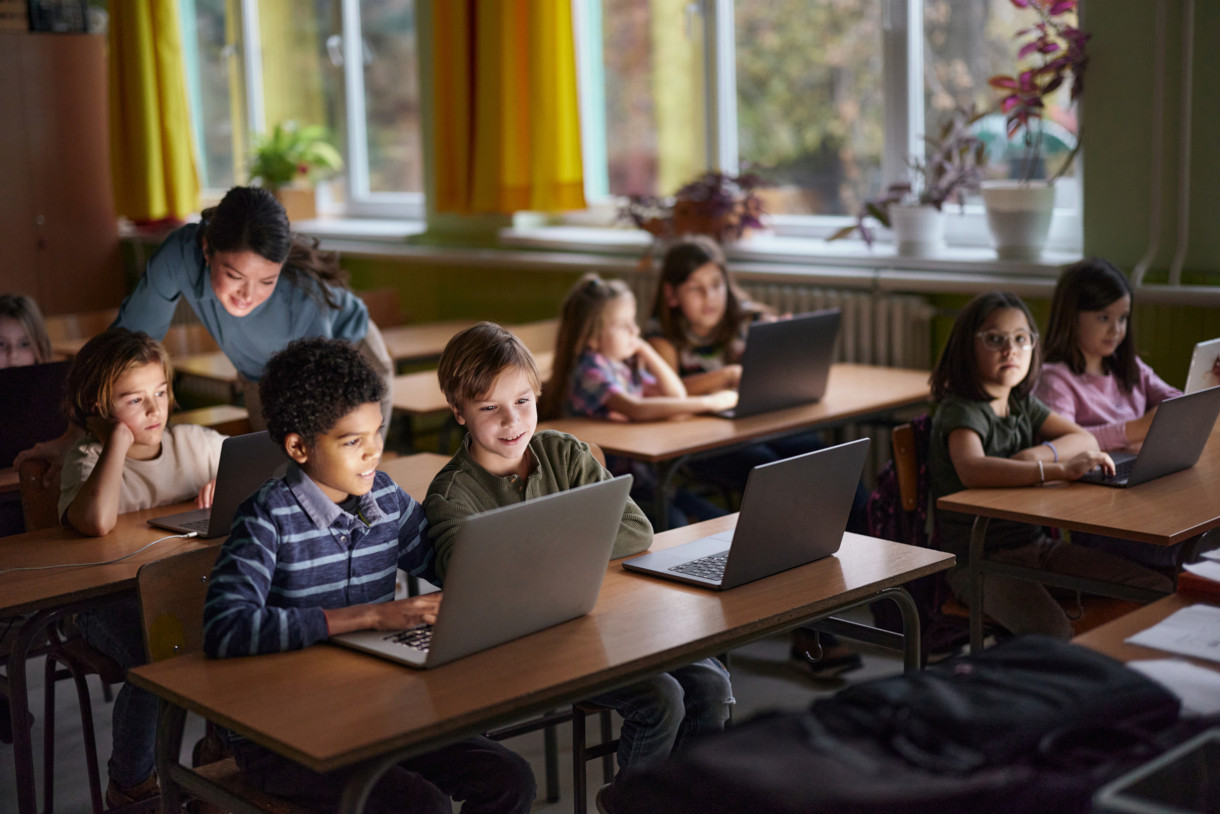What Do You Have to Lose? By Silvia Rosenthal Tolisano

Cross posted to Langwitches Blog
It is a new idea for many classroom teachers/students to move from writing, reading and "doing" work, not only for themselves, supervisors/parents or for a monetary compensation/grade, to share their work openly and freely with others. The idea of putting oneself "out there on the internet" (on a larger scale than the teacher lounge) and publicly "brag" about successes, admit failures, ask for help or document one's learning and teaching process, feels unnatural and even scares many of them. It is not the first time I am thinking about this "sharing thing". You can read about my train of thought by looking at previous posts about the topic:
- It’s All About Sharing & Collaborating
- There is a responsibility of sharing among Educators
- Sharing in Education- Is it Changing?
In the last few months I am reading and hearing more and more about sharing from others. Starting with Dean Shareski's keynote at the K12Online Conference 2010 "Sharing, the Moral Imperative". Dean starts out his presentation with a strong quote by Ewan Mcintosh.
Dean says that we are in the early stages of a sharing revolution that includes so much more sharing than previous generations would have ever considered. Dean makes us think about how we share so much nowadays, our "immediate presence, location, photos, thoughts, videos, reading lists and more". He continues to ask: Is sharing an obligation in education? All the "sharing" that was required of teachers before was an occasional presentation at a conference, a faculty meeting or with a colleague down the hall. Sharing was "rare, hard and a luxury". Now that these obstacles seem to have evaporated due to technology tools and social network platforms, they have been replaced by the "who, where and the how" part of sharing. What is your reaction to that statement? You have a moral obligation to share as an educator! What are your reasons to share or not to share as a teacher?

Alan November in his book "Empowering Students with Technology" says:
Collaboration and sharing knowledge are the highly prized skills. This expectation of collaboration will eventually reach the teaching profession. Teachers will be valued for their ability to share their knowledge and solve problems about teaching and learning than an individual teacher could not solve alone.

Sharing seen as a valued skill for educators? Wow! What a divergence to the concept of teaching behind closed doors and holding on to all the resources, lesson plans and expertise a teacher has developed and reserved for the students they have in front of them. Not only does November predict that sharing will be valued, but he also designates sharing as a "skill", which is defined as the:
Tools and ideas to transform education. Sign up below.
Capacity to do something well; technique, ability. Skills are usually acquired or learned, as opposed to abilities, which are often thought of as innate
If sharing is a skill and a skill is "usually acquired or learned", then we might have to re-think start thinking about sharing as something we need to point out, incorporate, teach, model and coach others in.

Clay Shirkey also talks about sharing in his book "Cognitive Surplus". He makes the point, like Shareski, that "sharing" is changing. It has changed because of social media and networking tools, that allow anyone to produce and publish. He is very clear about the effect large quantities of people who share are having on media and society. They share for free, simply because they can and because they enjoy being able to connect with each other. We have not grasped the potential sharing might have on society and more particular on learning and education, due to the vast (and growing) number of people who share and aggregate an infinite number of topics.
Expanding our focus to include producing and sharing doesn't even require making big shifts in individual behavior to create enormous changes in outcome. The world's cognitive surplus is so large that small changes can have huge ramifications in aggregate.
We are increasingly becoming one another's infrastructure. This may be a cold-blooded way of looking at sharing- that we increasingly learn about the world through stranger's random choices about what to share- but even that has some human benefits. Our ability to balance consumption with production and sharing, our ability to connect with one another, is transforming the sense of media from a particular sector of the economy to a cheap and globally available tool for organized sharing.
Once we understand the moral imperative of sharing (Dean Shareski)...once we buy into our part in the cognitive surplus to solve universal problems too big to solve on an individual basis (Clay Shirkey)... once we acknowledge that sharing knowledge is a valued skill nowadays (Alan November), then we NEED to make "sharing" a vital component of our professional planning, collaboration, curriculum mapping, unit plans, lesson plans and daily interaction with students.
What do you have to lose?
- Look at the fifth grade teacher who shared her Christopher Columbus unit with the world by producing a video newscast and is receiving requests for her students to be "experts" to teach others about what they have learned.
- Look at the fourth grade teacher who uploaded her students' book trailer videos to her classroom blog only to be contacted by one of the book's author. They are arranging a Skype call by the author into the classroom.
- Look at the Middle School Language Arts teacher who shared her student's essay on the classroom blog only to have the family and friends of the fallen soldier she wrote about contact them to express a thank you.
- Look at what happens when I created a blogging unit and someone from St. Petersburg, Russia chose to translate the work into Russian for teachers and students, who most likely I will never meet, to benefit from.
- Look what happens when a college professor, Alec Couros, creates and shares a diagram of "The Networked Teacher".
- Watch more "Amazing Stories" (of sharing) collected by Alan Levine (2009)(2010)
How do you, as an educator, share your wisdom, your experience, your knowledge? How do you enable and encourage your students to share for the sake of sharing? How do you share to contribute to a larger goal of solving a problem or teaching others who you might never meet or hear from? What are some of the kickbacks you have gotten from sharing on a larger scale?
Take a few minutes to watch Dean's excellent video and his view on the moral imperative of sharing and... well...share your thoughts!
